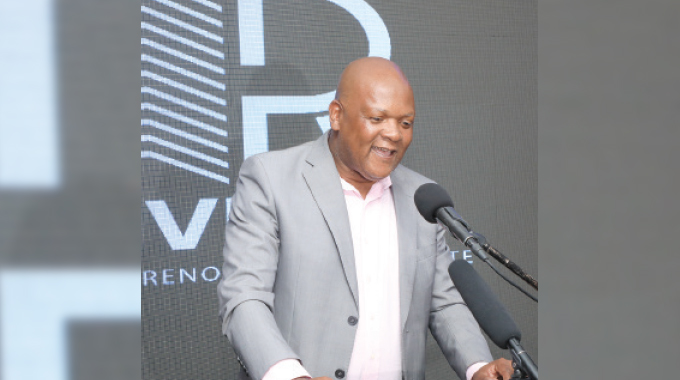Govt crafts policy to improve ease of doing business

Mr Jacob Nyathi (with mic) a delegate, makes a contribution during the Ministry of Macro-Economic Planning and Investment promotion workshop at a local hotel yesterday
Business Editor
GOVERNMENT has begun a process of crafting a National Investment Policy (NIP) aimed at bringing clarity and policy consistency in the investment sector as well as enhancing the ease of doing business in the country.
The initiative is part of broader measures towards improving the investment climate for both domestic and foreign investors in line with Zim-Asset. The crafting of the NIP is part of the three key economic pillars that also include the operationalisation of the Special Economic Zones (SEZ)s as well as harmonisation of investment laws.
Macro-Economic Planning and Investment Promotion Minister, Simbarashe Mumbengegwi, said in Bulawayo yesterday that Government was accepting stakeholder input to ensure the proposed policy initiatives impact positively on the economy.
“The crafting of the NIP will be preceded by the crafting of the national investment policy statement, meant to give framework for the policy.
“Its aim is to give a positive signal to the domestic and international community that Zimbabwe is committed to instituting policy reforms that make it more conducive for investors to undertake their operations in the country,” said Minister Mumbengegwi in a speech read by his principal director, Mr Taguma Mahonde, during a Zim-Asset II consultative indaba.
The ministry is engaging different stakeholders on the formulation of Zim-Asset II, a successor to Zim-Asset phase one, which expires next year. The two-day deliberations also focus on the 2030 United Nations Sustainable Development Goals and investment policy laws in the country.
Minister Mumbengegwi said the proposed statement would spell out principles, priorities and reform measures that will shape and inform the actual drafting of the investment policy.
The Government has already embraced the Special Economic Zones model with the gazetting of the SEZ Act in June this year paving way for its implementation. Bulawayo, Sunway City in Harare, Victoria Falls and Tokwe Mukorsi have been identified as pilot SEZs and the model is expected to be expanded to all provinces taking into cognisance the comparative and competitive advantage of each.
An SEZs board led by former apex bank chief, Dr Gideon Gono, has been appointed and is working on establishing a SEZ authority that will supervise day to day operations of the model.
Minister Mumbengegwi said the Government was crafting a SEZs policy to complement the SEZ Act and the NIP. The SEZ policy will provide a broader implementation framework including spelling out priority areas, determining incentives, institutional structure, implementation trajectory and monitoring and evaluation.
The minister said harmonisation of investment laws would address key legislative issues that affect investment. This includes operationalising the one-stop-shop investment centre which was launched in 2010 in order to streamline all investment approvals.
“The harmonisation process is also meant to achieve policy clarity, consistency, simplicity and predictability. This entails addressing challenges that are linked to investment entry, establishment and retention in the country,” said Minister Mumbengegwi.
Both Zim-Asset and President Mugabe’s 10-Point Plan identify investment as a key pillar for achieving economic growth and development goals.
In view of investor concerns, the Government is already implementing certain initiatives and reforms such as the ongoing ease of doing business spearheaded by the Office of the President and Cabinet (OPC).
The consultative process, which has so far covered the Midlands and Matabeleland North provinces, is part of the OPC-driven Rapid Results Approach running from 28 August to 5 December 2017.
The business community, the civic society, development partners, local authorities and policy makers are attending the symposium.
Govt crafts policy to improve ease of doing business











Comments